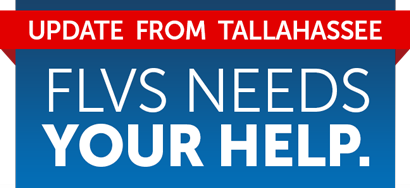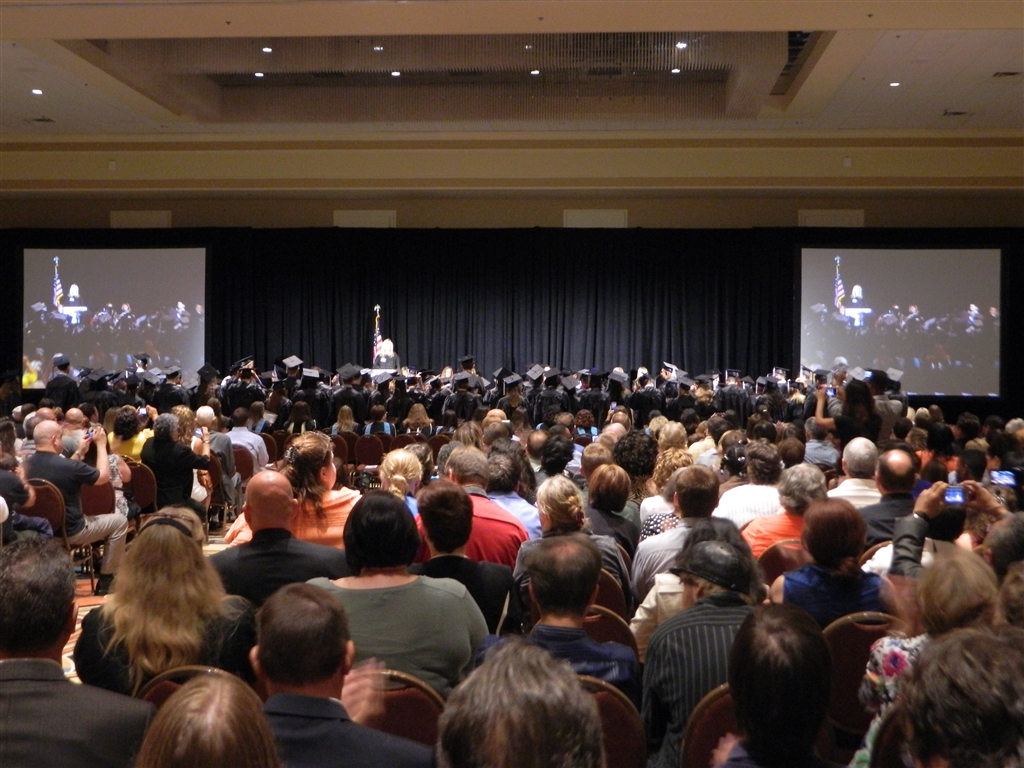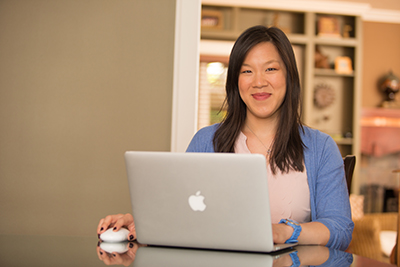Online Education
Florida Virtual School’s Inaugural Graduation Ceremony: FLVS Full Time, Class of 2013
By Guest Blogger on June 10th, 2013
I’ve been asked a lot of questions about Full Time Virtual Schooling, especially as a senior. I feel now is a good time to let the world know the answers since I have completed high school and graduated from FLVS Full Time (FT).
One misconception is that people think I wouldn’t know my teachers or have much contact with them. Continue reading
What an FLVS Teacher Does
By Guest Blogger on May 6th, 2013
“What do you do for a living?”
I am asked this question, I am sure like many of you, many times a week. After I give my response, on occasion I get a puzzled look with the question, “How do you make those connections like they do in the traditional classroom?”
Let’s imagine you are arriving to the most posh and plush resort in the world. You have seen it on television, on the web, or perhaps in person. You arrive and you feel lighter in your feet, the smell of the hotel reminds you of the succulent aroma of spa salts, and you are greeted with your favorite beverage adorned with a drink umbrella. Continue reading
FLVS Joins Forces with the University of Florida’s CAMP Gator
By Guest Blogger on May 2nd, 2013
This year, Florida Virtual School (FLVS) is piloting a program in collaboration with the Collegiate Achievement Mentoring Program (CAMP Gator) at the University of Florida (UF). Students from UF serve as virtual leadership mentors to FLVS students enrolled in the Leadership & Skills Development course.
Each week, mentors and mentees meet online to complete activities and lessons related to leadership development, goal setting, and ways to achieve current and future successes. Continue reading
Why FLVS is Important for Kids
By Guest Blogger on April 15th, 2013
When people ask me what I do and I tell them I’m a teacher, they almost always ask, “Where?” When I reply Florida Virtual School, I am often met with a confused expression. Then the questions start. Where is it located? How do the students take their courses? How often do you see them? What kinds of courses are offered? Why would kids want to take their courses on a computer anyway? Of course I try to answer all of these questions in the best way I can, but I never know if I get across to people how important online schooling can be for students. Maybe I didn’t even fully realize it myself until today. Continue reading
Homework Hassles
By Guest Blogger on April 8th, 2013
 My sister is conducting her own personal rally against homework. I don’t blame her one bit. Most of my working-parent friends pick up their children after 5:30 p.m. By the time they get home and eat dinner, they may have one-and-a-half hours of quality time left with their child. Then the homework monster rears its head, which often consists of the parent helping to clear up incorrect concepts. My niece did her share of complaining about homework too. I thought the United States was making headway in educational practices, but from her comments, it seems that rote practice is normal. Are we still in 1900? Continue reading
My sister is conducting her own personal rally against homework. I don’t blame her one bit. Most of my working-parent friends pick up their children after 5:30 p.m. By the time they get home and eat dinner, they may have one-and-a-half hours of quality time left with their child. Then the homework monster rears its head, which often consists of the parent helping to clear up incorrect concepts. My niece did her share of complaining about homework too. I thought the United States was making headway in educational practices, but from her comments, it seems that rote practice is normal. Are we still in 1900? Continue reading
One Size Fits No One
By Guest Blogger on March 26th, 2013
 It’s legislative season in Tallahassee again. We know that March will come every year, yet every year it seems such a shock to us that FLVS must stand ready to defend its district against those who would cut first and consider later.
It’s legislative season in Tallahassee again. We know that March will come every year, yet every year it seems such a shock to us that FLVS must stand ready to defend its district against those who would cut first and consider later.
This battle is recursive—we do it over and over and over again. But, when you are a space-creator, you must also be a space-holder. Continue reading
Presenting Before the House Subcommittee on Early Childhood, Elementary, and Secondary Education
By Guest Blogger on March 18th, 2013
 On February 14, 2013, I testified at a hearing titled, “Raising the Bar: How Education Innovation Can Improve Student Achievement,” before the House Subcommittee on Early Childhood, Elementary, and Secondary Education.
On February 14, 2013, I testified at a hearing titled, “Raising the Bar: How Education Innovation Can Improve Student Achievement,” before the House Subcommittee on Early Childhood, Elementary, and Secondary Education.
Several witnesses were present to provide personal and professional insight into the advantages of digital learning and technological innovation. The experience was an exciting opportunity to see how personalized innovative learning models are being recognized at the local, state, and now federal level, resulting in more choices for students and families. Continue reading
Leap of Faith
By Guest Blogger on March 14th, 2013
 There is a reason that I am at Florida Virtual School (FLVS) – my aunt made me take a leap of faith. In 1997, a friend interviewed for Florida High School, an early name for FLVS. When she came back from the interview, she said, “You need to go interview – this is made for you.” So, I went to meet with Julie Young and heard about the plans for this radical new thing called a virtual school.
There is a reason that I am at Florida Virtual School (FLVS) – my aunt made me take a leap of faith. In 1997, a friend interviewed for Florida High School, an early name for FLVS. When she came back from the interview, she said, “You need to go interview – this is made for you.” So, I went to meet with Julie Young and heard about the plans for this radical new thing called a virtual school.
After being offered a position, I went home and agonized all night. I had a nice teaching job where I knew what was going to happen tomorrow, and I had a pretty good idea what was going to happen next year and the following. This was radical – no one in the country was trying to create a public virtual school. It could fail before it even started. Continue reading
The Student Data Backpack from the Practitioner’s Point of View
By Guest Blogger on February 21st, 2013
 Recently, I spent a little time reading the Digital Learning Now Smart Series whitepaper: DATA BACKPACKS: Portable Records & Learner Profiles. This topic is of interest and importance for the following reasons:
Recently, I spent a little time reading the Digital Learning Now Smart Series whitepaper: DATA BACKPACKS: Portable Records & Learner Profiles. This topic is of interest and importance for the following reasons:
FLVS is committed to keeping the student at the center of every decision that we make. How can we be sure we are making good decisions if we have limited data?
The current process for retrieving the student data we can get is extremely time consuming, lengthy, and really just stinks all the way around. Continue reading
Researching Student Success
By Guest Blogger on February 11th, 2013
 In the spring of 2012, Dr. Brian Marchman, Dr. Matthew Ohlson, and Kathryn Haber conducted extensive research to examine the leading indicators of student success at Florida Virtual School.
In the spring of 2012, Dr. Brian Marchman, Dr. Matthew Ohlson, and Kathryn Haber conducted extensive research to examine the leading indicators of student success at Florida Virtual School.
The study examined the mathematics performance of more than 5,000 high school students over a three-year period. The initial hopes were to determine the factors that led to student success including communication with the teacher, participation in help sessions, length of time in the course, and student/teacher demographics. Continue reading




